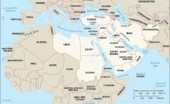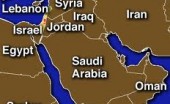Re Ian Bremmer 'Could third-party candidates upend the 2024 US election?' 3 April The current political movement in the USA…
Wednesday Night #1369
Written by Diana Thebaud Nicholson // May 28, 2008 // Alexandra T. Greenhill, Americas, Arctic and Antarctic, Asia, Business, Canada, Chilion Heward, China, Economy, Emerging markets/economies, Environment & Energy, Europe & EU, Global Markets, Inflation, Infrastructure, Investment, Markets, Oil & gas, Public Policy, Reports, Ron Meisels, Trade & Tariffs, Transportation, U.S., Wednesday Nights, West Wing (WWWN) // 1 Comment
An unexpected treat … Chil Heward will be bringing his son Geoffrey, Senior Vice-President and Director of G.F.G. Heward.
Geoff began his investment career over 25 years ago working in London England as an Equity Dealer on the London Stock Exchange for Cazenove and Co, returning to Canada with Merrill Lynch focusing on US and Foreign Equity Sales in the late 1980’s. He subsequently went on to senior equity sales positions with Sanwa Bank and Scotia Capital Markets. Before joining the Heward Team, Geoff was the Head of Sales and Vice President of Equity Capital Markets with Desjardins Securities in Toronto. As a member of the Investment Committee Geoff is also responsible for marketing and client services in the
Barring unforeseen developments, Ron Meisels (recently returned from the second-ever West Wing of Wednesday Night) will introduce his colleague Toronto area and Overseas. Olaf S. Sztaba who is the co-author, with Ron of the NA Market Letter – They are sure to have opinions on Energy stocks (see below) and those of you who are unable to be with us, may wish to fire some questions. Ron will, of course, also report on his West Wing experience.
We are burned out after last week’s intensive evening on Carbon: emissions trading, tax, credits, cap-and-trade, and the Montreal Climate Exchange, opening on Friday at an exchange near you. It was a highly educational evening for most of us, in the company of Glenn Goucher and Bert Revenaz, with Judith Patterson to set the record straight on oil depletion, Catherine Gillbert to keep them green and Liberal, and Kimon to remind us of the need for global solutions to global problems.
Thus, we failed to address the Gazprom deal in Québec with Gaz Métro and its partners. Are we happy about this? Should we worry about the ominous statement that Gazprom [is] just an arm of the Kremlin? Coincidentally, it has just been announced that Gazprom enters Nordic carbon trading market. There should be heightened interest in this question with the even more recent report that CNOOC Ltd , China’s No. 3 oil company, was in talks to buy Talisman Energy or some of its assets. (Chinese state firm rumoured to be courting Talisman)
We are wondering what, in the wake of the MDA decision (MDA’s space business sale rejected), the Conservative government will do.
In Doug Lightfoot’s absence, there was also no discussion of Ottawa’s scrapping of the two nuclear reactors that were planned to produce medical isotopes.
With yet another jump in gas prices we suggest a careful read of Stratfor’s piece on the Geopolitics of $130 oil.
There was, of course, the occasional reference to ‘Mad Max’ (Bernier) last week, but nothing that presaged his swift fall from grace and the metaphorical shot that was heard around the world . We admit to almost feeling sorry for Stephen Harper.
Moving right along, let us rejoice in the news that Nasa’s Phoenix lander has touched down safely on the northern plains of Mars after a 10-month journey from Earth and marvel at the pictures Given this astounding success, one can only concur with those who say that the ‘insurmountable problems’ related to climate change, world hunger and exhausted energy supplies can be overcome by human ingenuity, science and technology.
We should keep an eye on the so-far little reported Greenland summit to discuss carve-up of Arctic and be thankful that Maxime Bernier was not sent to the meeting (couldn’t resist that!).
The Report
A return to the early days with the single, albeit multi-faceted topic of the economy
Virtually everything that is transported, including food, humans and other animals, raw materials, and manufactured products is dependent on petroleum and petroleum products.
A recent report by Jeff Rubin, Chief Economist at CIBC World Markets, underlines the relationship between the economy and transportation costs, stating “in today’s world of triple-digit oil prices, distance costs money… The cost of shipping a standard 40-foot container from East Asia to the North American east coast has already tripled since 2000 and will double again as oil prices head towards US$200 per barrel”.
This could be enough to put globalization in reverse gear and may mean the repatriation of manufacturers of goods with low value-to-freight ratio.
In the U.S. the possibility of $4-per-gallon gasoline through the summer, could become a bigger issue than the sub-prime fiasco. As costs rise beyond the point at which companies can absorb them, they must be passed on to the consumer (e.g. airline travel). Discretionary income in the U.S. is disappearing in the face of rising costs of healthcare, education and now food, all of which are directly or indirectly related to energy costs. One area of particular concern is the fixed income market in light of rising bond rates.
There is a virtual feeding frenzy in the commodities markets, fuelled by commodity and hedge funds. Oil appears to be the most recent in a succession of commodities ranging from wheat and uranium to rice and there are those who believe that now that it is in the news every day in every medium, the bubble will collapse. Even so, it must be recognized that we are in a new era of higher commodity prices.
In Southeast Asia, India and China, the middle class has become more numerous and affluent, driving domestic consumption and creating some interesting investment opportunities.
The fear is twofold, namely that of a burst bubble and perhaps more realistically, double digit inflation rates. Natural disasters and a rapidly increasing gap between haves and have-nots have added to the concerns of those who attempt to predict the future. Without doubt, there is a rising geopolitical risk.
Current account deficits in many countries of the world, in particular, but not confined to, the United States, increase concern about the direction that the world economy will take. A return to the gold standard is not an option because of the increased cost of mining and limited supply of that metal. As the floating rate seems to have broken down, it appears that we are caught in a global liquidity trap, but there is little public policy discussion of what to do to correct the situation (reform of the IMF), although the consequences (surges in bubbles) are evident. With anticipated decline of the dollar up to 30% (reworking the U.S. tax structure would certainly go a long way towards solving their problem, but is unlikely), the euro is currently in demand as an exchange currency. However, many consider the euro overpriced, unlikely to go beyond $1.60 U.S., and could well drop to $1.35
Europeans complain about concurrent high energy prices and current account deficits, a new phenomenon for them and a warning sign of problems ahead. Although little is written about it in North America, Europe and the U.K. are suffering from the fallout from the increasing gap between prices and wages, which has created issues with labour and the potential for increasing strife between have and have-nots. (Worse than the Thatcher years)
In at least one view, the U.S. has the will and the capability to turn the decline in its currency into an advantage. Industries that rely on their ingenuity, productivity and newly competitive labour costs will do well provided there is no political interference in the form of government regulation. BUT there will be industries that decline and disappear, leading to social problems. There is a need to stimulate participation in the democratic process, to correct the low voter participation we are witnessing at all levels; we should be looking at the Australian model whereby voting is mandatory, as is public service.
According to some analysts, the most recent decline in the stock market ended in January of this year and the markets have been on the rise since then. The rest of 2008 should be good for the market, especially in the energy and gold sectors. Others don’t see much growth in Europe and North America. They see a lot of liquidity with potential investors afraid to act. The developed markets are predicted to go through inflation well but the emerging markets have an inflation problem and interest rates are going up. The worst of the bad news has passed and a rising market is anticipated. Gold appears to have become the third world currency.
An interesting development in both the emerging markets and Canada is a renewed investment in infrastructure. A lot of money will be spent on infrastructure and could well be what will keep the economy going.
Canada is fortuitously in the right place with the right commodities at the right time. Consequently the Canadian dollar should remain strong. In the longer term the BRIC and Southeast Asian currencies will do the best. China is expected to re-evaluate the Yuan after the U.S. election.
The wild cards in the equation are Labour and government. In the climate of the increasing gap between income and expenses and the tendency of governments to protect inefficient and uncompetitive businesses through subsidies, the future is still uncertain. Real income in North America has not increased in twenty years, but this has been offset by increased productivity. But labour is restive and labour costs drive inflation, business costs and, ultimately stocks.
We in Canada are more regionalized than ever in terms of income and are very dependent on the U.S. economy. The Bank of Canada has some tough decisions to make, while trying to keep monetary policy free from political interference. Seen through the eyes of others, Canada – and indeed North America – appears to enjoy political and monetary stability and looks inexpensive and interesting to foreigners, raising concerns that the attractiveness of Canada’s natural resources, water, petroleum and minerals and our relative inability to defend ourselves from takeovers by sovereign wealth funds and other investment vehicles of foreign nationals. Arctic sovereignty is of particular concern. (Watch for the results of the Arctic Summit in Greenland)
Two critical questions are post-Olympic China and Iraq. The crystal ball is somewhat fogged on China with opinions differing on the impact of migration from the rural areas to the cities, and the question of civil rights versus effects of the Olympic Games and the 24/7 Internet on the possible liberalization forced on the Communist Chinese government, not unlike events leading up to the Hungarian revolution. Ever inscrutable however, the answer, whatever it may be, will come as a surprise. As for Iraq, a rather astounding prediction has been offered by an informed Wednesday Nighter who expects that within the not too distant future, perhaps from one to three years, Iraq will become stabilized and a secure source of petroleum in the world market.
Report on West Wing Wednesday Night #2 from Ron Meisels OWN.
Lovely crowd, about 10 people around the table, a lot of cross-talk without the firm hand of our Chair, great discussion
He noted the contrast in attitude about their city –
Linda Naiman spoke very interestingly about her work in corporate coaching and teambuilding through developing creativity and innovation at the intersections of Business, Art, Design and Science, focusing on creativity, collaborative leadership, and cultivating environments that foster innovation.
Alexandra Tcheremenska – a gracious and very well organized moderator/host
Bottom line: they are up and running and it’s a great idea




One Comment on "Wednesday Night #1369"
OECD cools recession fears
JAY BRYAN, The Gazette
Overheated fears that Canada is in a recession received a bucket of cold water yesterday from the Organization for Economic Cooperation and Development, the economic think tank run by 30 leading industrial nations.
“Growth is projected to remain weak until spring 2009 as U.S. demand stagnates, but no recession is expected” in Canada, according to the latest global economic forecast from the Paris-based organization. More